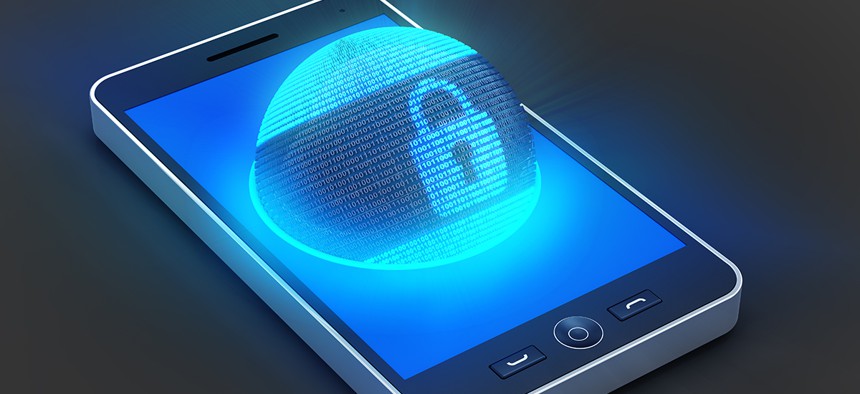NSA Chief Has a Phone for Top-Secret Messaging. Here’s How It Works.

ymgerman/Shutterstock.com
The Boeing device is less a phone and more a locked-down portal to a faraway server.
There’s no such thing as a perfectly secure phone, especially if it also connects to the internet. But leaving your phone on the plane every time you visit a hostile foreign country isn’t an option for everyone, so a handful of top military commanders now have a device that can send and receive secret and top secret messages. No surprise: It doesn’t work quite like the one in your pocket.
Developed by Boeing and the Defense Information Systems Agency, the Boeing Black phone has a dual-SIM card that “enables users to switch between government and commercial networks. Boeing Black integrates seamlessly into customer mobile device management systems and virtual private networks,” according to the product data sheet.
One of the recipients is Cyber Command chief Adm. Michael Rogers, said DISA head Lt. Gen. Alan Lynn.
That’s not to say everyone in the military can expect to receive one.
“The Boeing Black is the device we’re currently working with,” Lynn said. “We’re just now in the test phase."
That the military has been working on such a device is no secret. Many device manufactures have been eager to meet rising military needs for secure communication. One contender, Silent Circle, co-founded by encryption guru Philip Zimmerman and former Navy Seal Mike Janke, has managed to push a few units into the hands of some military for testing and recreational use.
Lynn said the Boeing Black phone also works with “a large amount of encryption.” But the encryption alone is not what makes the device so secure.
“There’s nothing that lives on the devices,” Lynn said. “It’s close to a VDI,” a virtual desktop infrastructure.
What that means is the most secure phone in the world is, in the purest since, just a window to another computer, a remote server on the military’s top secret JWICS network. That server does all the real work and holds the data. The phone itself just moves input commands—keyboard, mouse and other signals—to that server. The result, Lynn said: “We’re not too worried about losing data,” at least not off the phone.
But does Rogers like the phone? Lynn said, “I think he does. Haven’t heard any complaints.”
NEXT STORY: Why government open-data practices are low-tech






